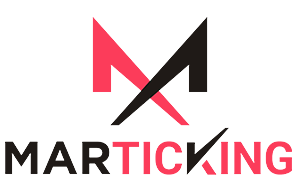Which Social Media Platforms Should You Use for Your Business?
In the dynamic landscape of social media, businesses face a plethora of options when it comes to selecting platforms to promote their products or services. From well-established giants to emerging players, each platform offers unique opportunities and challenges. This guide aims to assist businesses in navigating this complex terrain by addressing key questions: Which social media platforms offer the highest remuneration? What are the latest entrants in the social media sphere? Which platform reigns supreme for professional networking? Additionally, we’ll explore the intricacies of creating a bespoke social media platform tailored to specific business needs.
1. Identifying Profitable Platforms
Monetization potential varies across social media platforms, with some offering more lucrative opportunities for businesses. Among the established platforms, YouTube stands out as a leader in revenue generation for content creators. Through its Partner Program, YouTube enables creators to earn through ad revenue, sponsored content, and merchandise sales. The platform’s vast user base and diverse content ecosystem make it an attractive option for businesses aiming to capitalize on video marketing.
Similarly, Instagram offers substantial earning potential for businesses leveraging influencer marketing. Brands collaborate with influencers to promote their products or services to the influencer’s followers, tapping into their engaged audience and authentic appeal. With the advent of Instagram Shopping, businesses can now sell directly through the platform, further enhancing revenue-generating capabilities.
Furthermore, emerging platforms like TikTok are reshaping the social media landscape with their innovative approaches to content creation and consumption. While still in its nascent stage, TikTok has already proven to be a fertile ground for brands looking to connect with younger demographics through engaging short-form videos. Brands can partner with TikTok influencers or launch creative advertising campaigns to reach millions of users worldwide.
2. Exploring new social media platform
The social media landscape is continually evolving, welcoming new entrants that challenge established norms and offer fresh opportunities for businesses. One such platform gaining traction is Clubhouse, an audio-based social network that facilitates real-time conversations on various topics. Businesses can host rooms to engage with their audience, conduct industry discussions, or even organize virtual events, leveraging the platform’s unique audio format to forge meaningful connections.
Another noteworthy newcomer is Dispo, a photo-sharing app that recreates the experience of disposable cameras. With its emphasis on authenticity and spontaneity, Dispo appeals to users seeking a departure from meticulously curated content. Businesses can leverage Dispo’s nostalgic charm to showcase behind-the-scenes moments, humanizing their brand and fostering genuine connections with their audience.
3. what is the largest social media platforms for professionals
For businesses targeting a professional audience, LinkedIn remains the undisputed leader in the realm of professional networking. With over 800 million users worldwide, LinkedIn offers unparalleled access to decision-makers, industry professionals, and potential collaborators. Businesses can establish a robust presence on LinkedIn by sharing thought leadership content, participating in relevant groups, and leveraging the platform’s advertising tools to reach their target demographic effectively.
Additionally, LinkedIn’s robust suite of features, including LinkedIn Sales Navigator and LinkedIn Learning, provides businesses with valuable resources to enhance sales prospecting and employee training. By harnessing the power of LinkedIn’s professional network, businesses can position themselves as industry leaders and unlock new opportunities for growth and expansion.
4. how to create your own social media platform
Creating a bespoke social media platform tailored to your business’s unique requirements can offer unparalleled control and customization. While developing a social media platform from scratch is a daunting task, several approaches can streamline the process.
One option is to leverage white-label solutions that provide pre-built frameworks for building social media platforms. These solutions offer customizable features and functionalities, allowing businesses to launch their platforms quickly and cost-effectively. By partnering with experienced developers, businesses can ensure that their platform meets their specific needs while avoiding the complexities of building from scratch.
Alternatively, businesses can opt for a hybrid approach by combining existing social media APIs and frameworks to develop a tailored solution. By integrating APIs from platforms like Facebook, Twitter, or Instagram, businesses can leverage existing user bases and functionalities while adding unique features to differentiate their platform.
which social media platform pays the most
When considering which social media platform offers the highest remuneration, YouTube emerges as a frontrunner in terms of revenue generation for content creators. Through its Partner Program, YouTube enables creators to earn income through various channels, including ad revenue, sponsored content, and merchandise sales. The platform’s vast user base and diverse content ecosystem make it an attractive option for businesses aiming to capitalize on video marketing. Additionally, YouTube’s monetization features provide creators with opportunities to generate substantial income based on factors such as views, engagement, and audience demographics. Overall, YouTube stands out as a lucrative platform for businesses seeking to monetize their content and reach a global audience effectively.
Conclusion:
In conclusion, for Marticking and businesses alike, selecting the right social media platforms is paramount for successful online engagement and revenue generation. Established platforms like YouTube offer significant earning potential through various monetization channels, while emerging platforms such as TikTok present new opportunities to connect with diverse audiences. LinkedIn remains unmatched for professional networking, enabling Marticking to establish industry leadership and foster valuable connections. Additionally, considering the potential of creating a bespoke social media platform tailored to Marticking’s unique needs can provide unparalleled control and customization. By strategically leveraging social media platforms, Marticking can enhance brand visibility, drive engagement, and ultimately achieve sustainable growth and success in the ever-evolving digital landscape.

